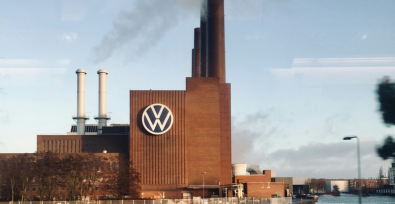Human rights groups estimate that more than 1 million Uyghurs and other Muslims minorities have been detained and held in modern slavery and forced labor in the Uyghur region of China. Thousands more have been forced into labor schemes and transferred out of the Uyghur region to work in factories, sometimes for global brands. Many countries have recently passed legislation to ban products made with Uyghur forced labor from entering their country. Now both China and foreign companies like Volkswagen (VW) who manufacture in that region, are starting to feel the effects of that legislation.
Forced labor a standard feature of China’s crackdown
It is well documented that the Chinese government uses forced labor as a tool of oppression against the Uyghurs and other minority populations concentrated in Uyghur region. Over a decade ago, in return for Chinese authorities approving an expansion in Guangdong, VW opened a manufacturing plant in the Uyghur region. Now that investment has come home to roost.
According to an article in the Financial Times:
“The German auto group is learning the hard way that politically driven investments have the potential to become hefty financial and reputational risks.”
After media published allegations of VW having benefited from Uyghur forced labor in the manufacture and building of its test track, the company was disqualified from Germany’s Union Investment sustainable funds. A few days prior to the damaging report, the BASF Group, another German company who produces oil and natural gas, announced they would sell their stakes in two Xinjiang chemical plants.
Economic woes may lead to an exit strategy from China
Divesting from Uyghur region has been a tricky proposition for many companies who do business there for fear of angering Chinese authorities. But now two of Germany’s biggest industrial companies have called into question the future of their investments and appear willing to brave the backlash after years of ignoring calls from human rights organizations to divest.
Max Zenglein, chief economist at China consultancy Merics said:
“This is a very opportune time to get out. This is a chance for companies to stop saying nothing is going on in Xinjiang.”
In 2023 China attracted the lowest level of foreign direct investment for 30 years as reported by Beijing. Plagued with a real estate crisis, slow economic growth and trade tensions with the U.S., China might be less likely to punish those who take a stand as they need to attract foreign investors to have any hope of reviving their economic growth.
Hitting businesses where it hurts
The good news is the new regulations demanding supply chains be free of forced labor are beginning to hurt both foreign manufacturers and China. Ensuring traceability is fraught with challenges, but it is doubly hard in China where transparency is the exception, never the rule. With thousands of VW’s cars held up in US customs due to the Uyghur Forced Labour Prevention Act due to a small supplier using tiny components from the Uyghur region, staying there may have become a money losing proposition.
The Financial Times writes:
“German companies found to have violated the country’s new supply chain laws, which also ban forced labor, face fines of up to 2 per cent of global turnover.”
If VW and BASF do leave the Uyghur region it would be a huge win for advocates and shareholders who want slavery free products from start to finish. It could also encourage other companies to move towards the exit in the Uyghur region. Help us keep the pressure on VW and others who have operations or suppliers in that region. Although the Chinese government continues to deny any wrongdoing, we can draw attention to the issue and put pressure on them to end the use of forced labor. If you haven’t already, sign our petition and tell China forced labor is always a losing proposition.







Freedom United is interested in hearing from our community and welcomes relevant, informed comments, advice, and insights that advance the conversation around our campaigns and advocacy. We value inclusivity and respect within our community. To be approved, your comments should be civil.